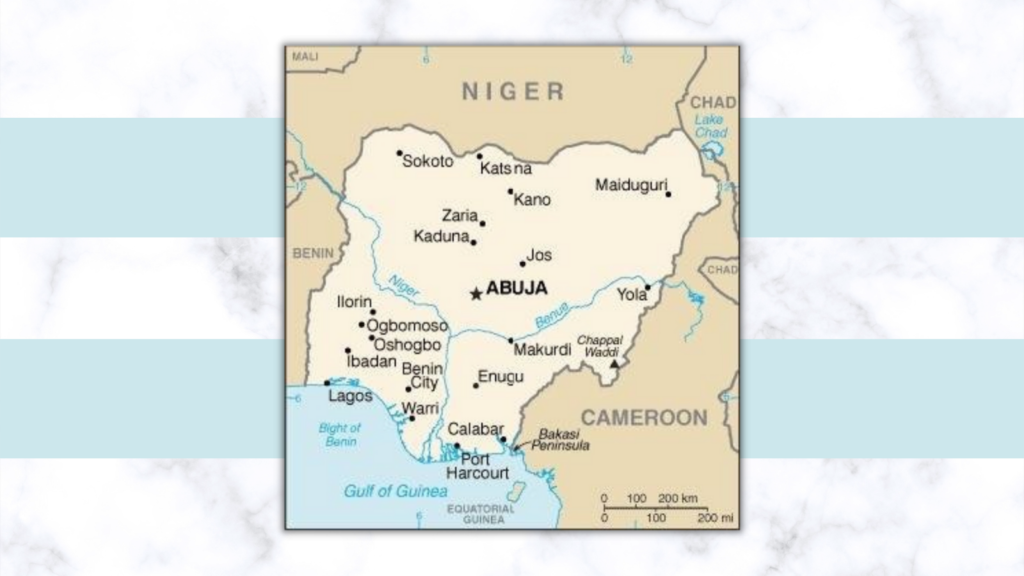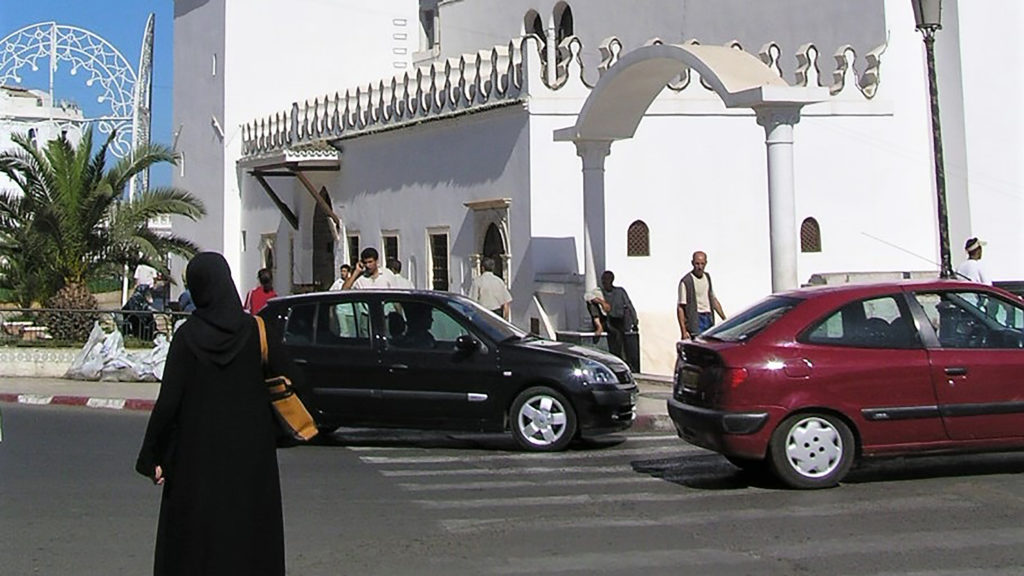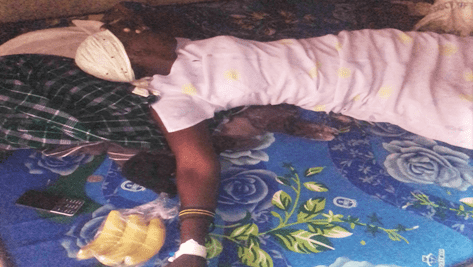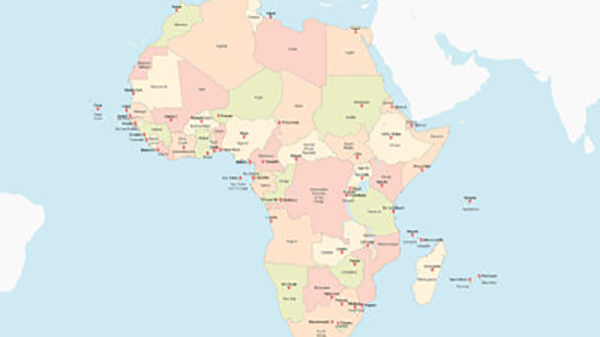The horror that gripped Baptists in 2009 when Pastor Fred Winters was shot in the pulpit, or in 1999 when a shooter opened fire on a youth group — that type of tragedy happens “weekly” in Nigeria, a Baptist leader said.
It is the most lethal country to live in if you are a Christian.
Seventy percent of the publicly reported Christian casualties worldwide in 2012 happened in Nigeria — more than Pakistan, Syria, Kenya and Egypt combined.
More than 900 Christians were reportedly targeted and killed for their faith last year.
“The reports are accurate, it’s just that the situation is even worse than what is being reported simply because [the media] can’t keep up with what’s going on,” said Jim Brighton, a Southern Baptist representative who lived in Nigeria for 14 years.
Problems have existed between Christians and Muslims in the northern part of the country since the 1980s, Brighton said, but “what is happening now is different.”
In April 2011, in what was dubbed one of the “freest and fairest” elections in Nigeria’s recent history, Goodluck Jonathan — a Christian — was elected president. Before his victory was announced, violence erupted in the 12 northern states ruled by sharia (Islamic law).
The final toll for the Christian community was staggering. In a 48-hour period, 764 church buildings were burned, 204 Christians were confirmed killed, more than 3,100 Christian-operated businesses, schools and shops were burned and more than 3,400 Christian homes were destroyed.
While there have been similar death tolls in certain incidents in terms of scope and coordinated scale of destruction, there has been no equivalent attack against the Church in recent decades, with the possible exception of government-backed genocides in Sudan.
And it wasn’t an isolated event, Brighton said — sweeping violence had happened before, it’s happened since and it will likely keep happening for a while.
“I do not see how this is going to be worked out,” he said, noting that he doesn’t think the military has the training to get the situation under control.
“The only thing that would help is if the Muslims of northern Nigeria rise up and put a stop to these people, because they know who they are and where to find them,” Brighton said. “Or it’s going to take the government partnering with local communities to do that. Right now I can’t see that happening.”
What’s happening right now is beheadings, shootings, rapes and mass destruction of property. In some places, people are too scared to sleep in their own homes, so they move into the cities to stay with others or camp at the top of rocks.
On May 14, Pastor Faye Pama Musa was killed by gunmen after Bible study.
The assailants reportedly followed him home from church, dragged him from his home and shot him outside in front of his daughter, who had followed them out pleading for his life.
At the end of April, gunmen charged into a church in Jilang Village in Maiha Local Government Area, opening fire as the pastor preached his sermon, according to the Nigerian Tribune.
Ten were left dead and 12 injured.
“These men just entered the church and started killing people without any justification. Blood is everywhere,” a source said.
A similar attack happened in January when men went on a shooting spree in the Christ Apostolic Church in Jimeta-Yola, the Nigerian Tribune reported. Nine churchgoers were killed.
There are many, many more examples.
Pastors have endured their churches being burned over and over in the last decade. In one case, police even watched as Christian women were raped on church premises and did nothing.
For extremists, there “is no sense of right and wrong,” and so Christians become “convenient targets,” said Jackson Curry, an Alabama Baptist who served in Nigeria for 25 years.
“It is a challenging time for them,” Curry said. “We must pray for God’s protection, His strength and His grace to cover them, to lift them up to be the powerful witness in Nigeria that they can be.”
Baptists in Nigeria say they are thankful for the prayers.
“It is greatly encouraging to know that some people are praying for us, bearing with us the grief we are bearing for the weekly losses of our brothers and sisters to the attack of Islamic fundamentalists,” said Supo Ayokunle, president of the Nigerian Baptist Convention, in response to expressions of support from the Baptist World Alliance that promised prayer from Baptists worldwide.
“We trust God that … the Lord will change their hearts and at the same time judge them rightly,” he said.
Morning Star News sources in the country credit the violence to several factors — the organized brutality of terror group Boko Haram, street-level aggression from armed Muslim youth and government problems — for example, unemployment — that exacerbate the situation.
The violence is mainly toward Christians but not always, Brighton said.
“There was an incident [in mid-May] in which terrorists on motorcycles rode through a village shooting in all directions at whoever happened to be there,” he said. “Christian or Muslim or animist — those bullets don’t discriminate.”
News services have reported that an amnesty committee has been meeting to consider how to engage Boko Haram for a lasting solution, but no decision has been settled.
According to BBC, Boko Haram is attempting to overthrow the government and set up an Islamic state.
On April 13, President Jonathan declared a state of emergency in three northern states with an order for the military to use “extraordinary measures” to stop the violent rebellion, according to AllAfrica Global Media.
By the end of March, at least 128 people had been killed in northern Nigeria, mostly Christians. And the number is climbing.
Peace is needed, but wisdom is needed even more, Brighton said.
“Pray for wisdom — don’t pray for protection,” he said. “Jesus never promised that we would always be protected, just that He would always be with us, whatever happened.”
Christian workers on the ground in Nigeria are having to make hard decisions about how to help people affected by the violence, Brighton said.
“We try not to cause seekers and new Christians persecution by having them publicly associated with us,” he said, noting that they let the believers choose when they want to be known openly as associated with Christian Westerners. “We try to keep a low profile.”
Workers and national believers need wisdom about where and when to go into different parts of the country, he said.
“It’s hit or miss. One day one part of town isn’t safe, and the next day it is, and a different part is dangerous,” Brighton said. “We have people in multiple locations trying to figure out how to help the new believers caught in the middle of all this.”
People are coming to Christ in the midst of all the violence, he said.
“You can’t stop the gospel. The gospel is going to spread, and we have wonderful things happening in spite of all this — new believers out of Islamic groups and animistic groups numbering in the hundreds and thousands,” he said. “We just need wisdom.”
EDITOR’S NOTE — Names have been changed for security reasons. (Morning Star News, TAB)
_________________________________________
Living as a Christian in Nigeria
Nigeria is constitutionally a secular state with freedom of religion, but the northern ruling elite give preferential treatment to Muslims and discriminate against Christians.
Little has been done to stem the growth of violent Islamist groups or to stop persecution of Christians in the north.
In the face of persecution, Nigeria’s prayer movement is one of the world’s strongest, stimulated by political stresses, Muslim persecution of Christians and a genuine desire for revival and evangelization.
The dynamic growth of the Church continues to be impressively solid.
Missions vision was birthed in the 1970s through revival among university students. This vision has blossomed into a movement accounting for more than 5,000 Nigerian missionaries serving at home and abroad, helping lead the way for Africa-wide missions mobilization.
Evangelicals have grown from 2.1 million in 1960 to 49 million in 2010.
Source: Operation World






Share with others: